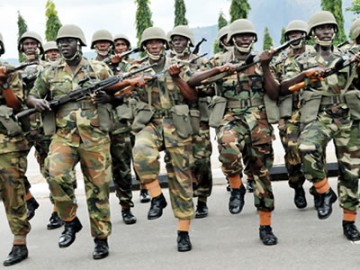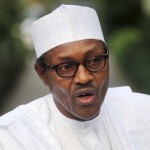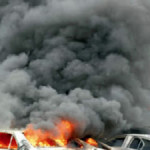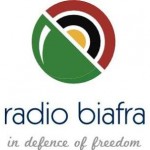OPINION – Coup Scare: Playing the Mind Game
Articles/Opinion, Featured, Featured Contributors/Columnists, Latest Headlines Wednesday, May 31st, 2017
By Sufuyan Ojeifo and Dare Ariyo-Atoye
In a profound historical recollection, 1983 is back in our consciousness. And the tell-tale signals are assailing our sensibilities: first was the tendentious rumour alleging the poisoning of President Muhammadu Buhari; there was the wicked threat in the social media by a police officer of Biu origin, Borno State, to kill 200 Nigerians if Buhari dies; then the ludicrous warning and hubris by two northern leaders, Junaid Mohammed and Ango Abdullahi, that power would remain in the north in 2019; and, wait for the bomb, the devious alarm raised by the Chief of Army Staff, Lt. General Tukur Buratai, which was suggestive of a proclivity towards a coup plot.
These disingenuous propositions with far-reaching political implications are capable of sinking or submerging the very socio-economic and political foundations of the nation. Although, while it may be speculative that these characters acted some prepared script, historical knowledge is enough to help in deciphering that the tones were aided by a community spirit that advances the need for a section to retain presidential command in 2019 in our recurrent struggle for power.
Buratai’s angle continues to agitate the mind the most. Army chiefs are usually not known to be flippant. Therefore, when on May 16, 2017, Buratai called national and global attention to himself and to the army via the alarm he raised over the discomforting relationship between some officers and politicians, he got many Nigerians to engage in some obligatory reflection of his motivation and essential persona.
Some critical questions consequently arose. Why did the army chief choose to openly advise soldiers not to hobnob with politicians through the media instead of the established chains of command? Secondly, did Buratai inform the acting president, Professor Yemi Osinbajo, before making such a weighty statement, which should have been complemented with a strong warning from the presidency? It was not until May 29, 2017 that Osinbajo made a tacit reference to the matter in his Democracy Day address to the nation.
Osinbajo had said, in part, “…What is not normal, or acceptable, is employing these frustrations as justification for indulging in discrimination or hate speech or hateful conduct of any kind, or for seeking to undermine by violent or other illegal means the very existence of the sovereign entity that has brought us all together as brothers and sisters and citizens.”
Buratai’s alarm, contained in a statement signed by Army spokesperson, Brigadier-General Sani Kukasheka Usman, suggested that some army guys and politicians were possibly up to something devious and had warned, point-blank, that any officer or soldier of the Nigerian Army found to be hobnobbing with such elements (politicians) or (found to be) engaged in unprofessional conducts such as politicking would have himself or herself to blame.
Let us now rewind to 1983 for some historical aids. A post in the social media by Abdul Mahmud, a constitutional lawyer and human rights activist, joggled our memories. Read him: “When Uba Ahmed promised the historical landslide and moon slide of the National Party of Nigeria (NPN) in April, 1983, opposition politicians of the Unity Party of Nigeria (UPN) and Nigerian People’s Party (NPP) warned him of the dangers of stealing the peoples’ mandate.
“Then, Gen Mohammed Wushishi, Chief of Army Staff, entered the fray. He warned ‘sojas’ who were mingling with politicians (in order) to do something sinister to the constitution to desist. NPN had its landslide and moon slide. The nation erupted with the old Ondo up in flames; Ikemba Front and Jim Vanguard turned the old Anambra into a war zone.
“There was no governance across the country between October and December 1983. Power was slipping from a section of the country…Then, ‘sojas’ struck. A northerner was named as the military head of state. Power returned to a section of the country…We are back to 1983. General Buratai is playing the same old game… setting our country on the beaten road…. Gird up your loins, folks; soon, we will return to the barricade to defend our country against military hawks and vultures.”
Mahmud’s historical account was salutary. The similitude the account has with the present development is indeed troubling especially within the context of the state of governmental affairs in Nigeria that has created great uncertainties and aggravated genuine concerns over the fate of a sick President Buhari who remains in the UK for medical treatment. There is, indeed, a serious cause for apprehension by Nigerians over Buratai’s alarm. Genuine fears that some elements might really be interested in undermining and dislodging the civilians have gathered more credence.
We are flummoxed that the National Assembly has not shown sensitivity to the matter by issuing a strong response that such developments demand. Buratai’s curious alarm had already created room for devil’s advocacies and conspiracy theories around a rumoured coup plot before the Defence Headquarters came out nine days after to debunk the rumour as unfounded. In a statement, signed by the Director, Defence Information, Major General John Enenche, it urged Nigerians not to panic and assured that the armed forces were totally loyal to the commander-in-chief and were in complete subordination to civil authorities.
There is, however, a measure of relief flowing from the Defence Headquarters’ disclaimer, which implication seems far reaching. Buratai’s perceived calculative, disingenuous and dangerous mind game is not a shared value in the armed forces. It may, therefore, be hasty to surmise that a likely Buratai’s gambit has exploded in his face since no one can, as yet, put a finger on his motivation for raising the alarm.
However, some intelligent guesses could be hazarded in this circumstance. One, Buratai may have sincerely acted to forestall a tendency towards a coup plot in the circumstance of a national politics that has become endangered due to the ill-health of a president of northern extraction; and Buratai himself being a northerner in whom Buhari has invested a huge trust.
The second guess is along the line of a moot point that Buhari’s health condition is on a fatal plunge and that the negative outcome would lead to a new presidential power configuration. Some forces in the north are said to be plotting to forestall a repeat of what happened to the late President Umaru Yar’Adua when he died in office and thus paved the way for vice president Goodluck Jonathan to become president.
The third guess is that Buratai had possibly appraised the different scenarios; and, finding out that the constitution will push political considerations to the background, decided to act politically correctly by trying to worm his way into the heart of the administration by raising a suggestive alarm, which would portray him as patriotic in the administration’s estimation. He would then sit pretty in its good book as a loyal and trusted officer with his eyes sharply focused on the office of the Chief of Defence Staff at the expiry of General Abayomi Olonishakin’s tenure.
But whatever was the real motivation and intention of Buratai’s scaremongering, the one important consensus that has crystallised by way of reactions is the popular opposition to the return of the military into governance. Experience, they say, is the best teacher. Democracy, they say, is better than the most benevolent military dictatorship. Basically, people hold government to account in a democracy. This is not so in a military government.
Kudos must, therefore, be given to the like of the National leader of the All Progressives Congress, Asiwaju Bola Tinubu, Governor Nyesom Wike of Rivers State, Governor Ifeanyi Okowa of Delta State and other democrats who have warned the military against staging any coup in the country. Tinubu’s assertion that Nigerians would resist any attempt to usurp the current administration of President Buhari was an understatement of what Nigerians could do.
Nigerians would, against the backdrop of the nation’s unsavoury past under military dictatorship, occupy Nigeria in defence of democracy, and not necessarily the APC administration. The Arab spring saga would be a child’s play in the circumstance. Whatever problems that arise in the perfection of our democratic experiment and power distribution, political solutions remain the most veritable option to explore in support of constitutional democracy in the country.
Messrs Ojeifo and Ariyo-Atoye contributed this piece from Abuja via ojwonderngr@yahoo.com
Related Posts
Short URL: https://www.africanexaminer.com/?p=39496






















